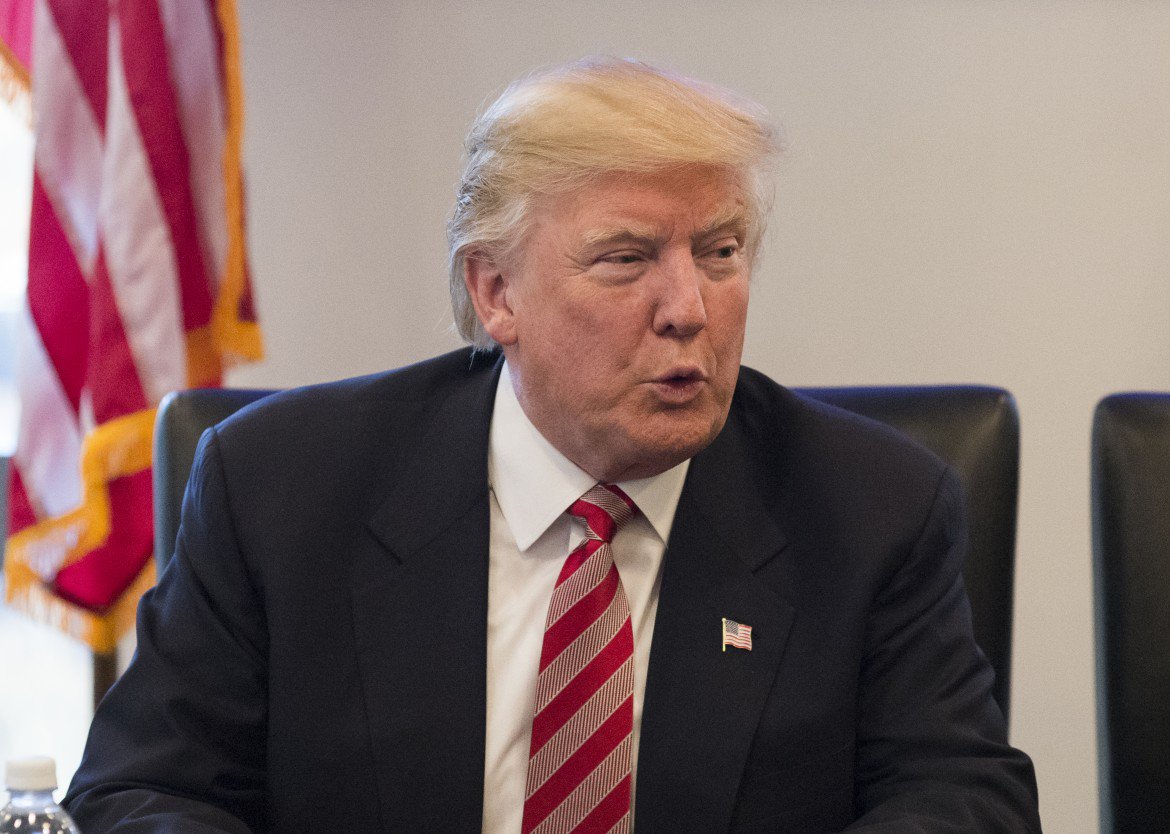Analysis
The giants of Silicon Valley, on their knees before Trump
Despite their ideological differences, Silicon Valley’s luminaries heeded the president-elect’s summons to Trump Tower.

Paradoxically, the only Silicon Valley titan not invited to the digital summit Wednesday at Trump Tower was Jack Dorsey, Twitter’s CEO, the favorite social media network of the president-elect. Dorsey had described the relationship as “problematic,” after the anathemas tweeted by Trump and after Twitter denied his election campaign the use of an anti-Hillary emoji. But apart from Twitter’s punitive exclusion, the rest of the elite was there: Tim Cook (Apple), Sheryl Sandberg (Facebook), Jeff Bezos (Amazon) and Larry Page (Google).
All the major players of the “digital-industrial” sector went to the Trump Tower in spite of the fact that they harshly criticized Trump and during the campaign supported and financed Clinton. Many in Silicon Valley criticized their rush to Trump’s court. Gizmodo, the irreverent news outlet of the Valley, wondered what might be the “supreme leader’s” punishment for disloyal subjects.
The moniker was a sarcastic reference to the “re-education session” Trump meted out to American journalists, summoned a couple of weeks ago by the “Manchurian” president. They, too, were called to the tower on Fifth Avenue for a meeting that soon turned into a “fucking firing squad,” according to one witness. Trump delivered a sound scolding to anchors and envoys of the TV networks. At some point, he even reproached CNN President Jeff Zucker: “Your network, everyone at CNN is a liar and you should be ashamed.”
As for the digital counterparts, Trump’s populist message in the de-industrialized regions of the Rust Celt had hardly impressed the technocrats and venture capitalists of the Left Coast. During the campaign, 145 tech luminaries signed an open letter against Trump. This initiative was led by Apple co-founder Steve Wozniak and Jimmy Wales of Wikipedia.
Yet the photos released by the press office portray a jovial gathering of digital oligopolists around Trump’s large table, the patriarch of the old economy and the new politics. It’s a singular image, since only a few months ago the president-elect had called for a boycott of Apple. Then, the maker of the iPhone refused the FBI’s request for access to the software code to pry open the phones of the San Bernardino bombers.
The generalissimos appointed by Trump to lead the control room of national security almost certainly agree on the need for access to Silicon Valley trade secrets to facilitate monitoring. Another area of dispute concerns the so-called “H-1B” visa for immigrants (mostly Asian and Indian) that Silicon Valley needs for specialized software programmers. The executives fear a potentially devastating threat from Trump’s protectionist and anti-immigration regime. But now Travis Kalanick of Uber and Elon Musk of Tesla and SpaceX, have been appointed as special advisers (previously Musk had described the Donald as “unacceptable,” and Kalanick had declared that in the event of Trump’s victory, he would emigrate to China).
The “surrender” is perhaps explained by the similarities between the high-tech industry, which concentrates a huge amount of wealth in very few hands, hidden behind the rhetoric of horizontal democratization, and the new government, armored by corporate interests, aligned behind a demagogue who deploys populist tweets to the rabble. Silicon Valley, with its liberal, ultra-meritocratic and hyper globalist ideology, might in fact find unsuspected convergence with the Trump regime.
On Wednesday, Peter Thiel was a guest of honor. A counter-cultural figure in Silicon Valley, Thiel was the founder of the PayPal payment platform and is currently the largest shareholder in Facebook, which has made him fabulously wealthy. Thiel supported candidate Trump from the beginning, contributing $1.25 million to the campaign and speaking at the convention in Cleveland. In his role today as “technological adviser,” he says the maverick style of the leader could “revive the economy.” Given Trump’s cabinet nominations, it is hard not to read this as a code for mobility, digital insecurity, gig economy and a further landslide of traditional work patterns for the middle and productive classes.
TV networks and newspapers are Trump’s favorite scapegoats — he loves to disparage members of the press amid the whistles at his rallies, and he mocks The New York Times as an endangered dinosaur. The Silicon Valley platforms — which were instrumental in this era of the viral hoax on which Trump has built his success — are booming and correspond, at least to the rhetoric, of innovation and know-how as a supreme tool to “make America great again.” Compare that with his dubious promises to coal miners in Kentucky and West Virginia or Ohio’s long-suffering steel industry, both of which are close to the heart of his electoral base. The “digital industrial sector,” in contrast, is actually a strategic sector for the American global hegemony.
Furthermore, this group promises to be critical in the formulation of a new relationship with China.
Trump-era policies will be a test for privacy and protectionism in general, and for strategies that will drive an economy. The latter, as Fed Chair Janet Yellen hinted at when she announced an increase in interest rates, is delivered to the new president in a state of good fiscal health with minimal deficits, record productivity and full employment.
Originally published at http://ilmanifesto.info/i-giganti-della-silicon-valley-in-ginocchio-da-trump/ on 2016-12-16
